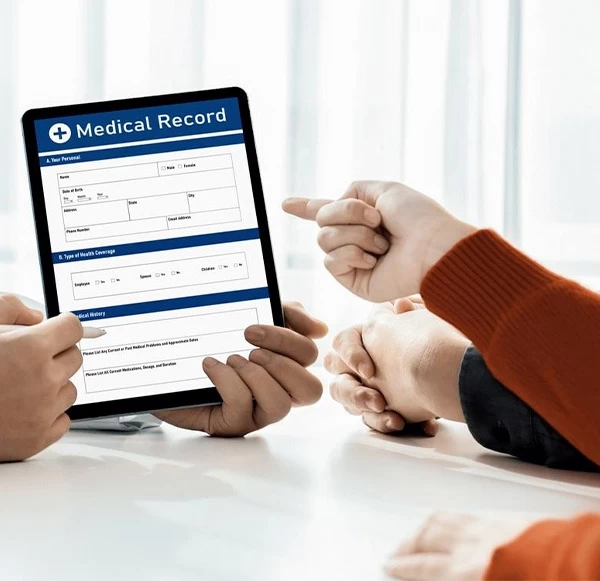- Email Us

Your kidneys are your body's built-in filters. They filter out waste, regulate water, and maintain the balance of minerals such as sodium, potassium and calcium. If your kidneys are not functioning, waste begins to accumulate in your blood, and that can damage your heart, brain, and health.
The RFT blood test, also called the Kidney Function Test (KFT), is the best way to find out how well your kidneys are working. It measures important markers in your blood that show whether your kidneys are healthy or under stress. Let's simplify what your RFT test results are all about, what's within the normal range, and when you need to do something about it.
When you go for this blood test, your blood sample is checked for specific markers that reflect kidney function. Here’s what you should watch out for when you get the results of the blood test packages:
Parameter | Low Levels Indicate | High Levels Indicate |
Blood Urea | Poor nutrition, liver disease, or overhydration | Kidney dysfunction, dehydration, or excessive protein breakdown |
Serum Creatinine | Low muscle mass or severe liver disease | Impaired kidney filtration, kidney damage, or obstruction |
Uric Acid | Rare, may indicate liver/kidney disease or certain medications | Gout, kidney stones, or reduced kidney excretion |
Sodium | Dehydration, adrenal problems, or excessive fluid loss | High blood pressure, kidney issues, or fluid imbalance |
Potassium | Weak muscles, fatigue, or arrhythmias | Dangerous heart rhythm changes, kidney dysfunction, or adrenal problems |
Chloride | Overhydration, heart failure, or Addison’s disease | Dehydration, kidney disease, or metabolic acidosis |
Calcium | Weak bones, muscle cramps, or parathyroid issues | Kidney stones, hyperparathyroidism, or certain cancers |
Phosphorus | Weak muscles, bone problems, or poor nutrition | Kidney disease, uncontrolled diabetes, or excessive vitamin D intake |
Doctors look at these values together to decide whether your kidneys are healthy or showing signs of strain. You may also go for LFT and RFT test together.
You don’t have to wait until you are sick to get this test done. Your doctor may recommend an RFT blood test if you have one or more of the following:
Diabetes or high blood pressure
Swelling in your legs, feet, or around the eyes
Pass less urine than usual
Feel constant tiredness, nausea, or loss of appetite
A Family history of kidney problems
Take long-term medicines that may affect your kidneys
Blood in urine, frothy urine, or a burning sensation while passing urine.
Many preventive packages also include RFTs to catch silent kidney issues early
Sometimes, the test is included in blood test packages during routine health checkups. This way, kidney issues can be spotted before symptoms appear.
Seeing abnormal results on your RFT report can be worrying. But don’t panic. The next steps depend on how high or low your values are and whether you have any symptoms. Your doctor may advise:
Repeat testing to confirm results
Lifestyle changes like reducing salt, avoiding junk food, and staying hydrated
Medication adjustments if certain drugs are stressing your kidneys
Further investigations, like urine tests, ultrasound, or other imaging scans
Since kidney health is tied to heart and liver function, additional tests like LFT and lipid profile may be suggested
If results suggest advanced kidney damage, you may be referred to a nephrologist (kidney specialist). Early steps can often prevent problems from getting worse.
The RFT blood test is one of the simplest ways to monitor kidney health. Your interpretation of your test results enables you to take appropriate action at the right moment. When combined with an LFT and RFT test, you get a more complete view of how your vital organs are working. Many test packages today include this test at affordable rates. So, take charge now, get your RFT blood test done at Mahajan Imaging & Labs, and give your body the care it deserves.
Also read: Complete Blood Diagnosis Services: Accuracy You Can Trust




